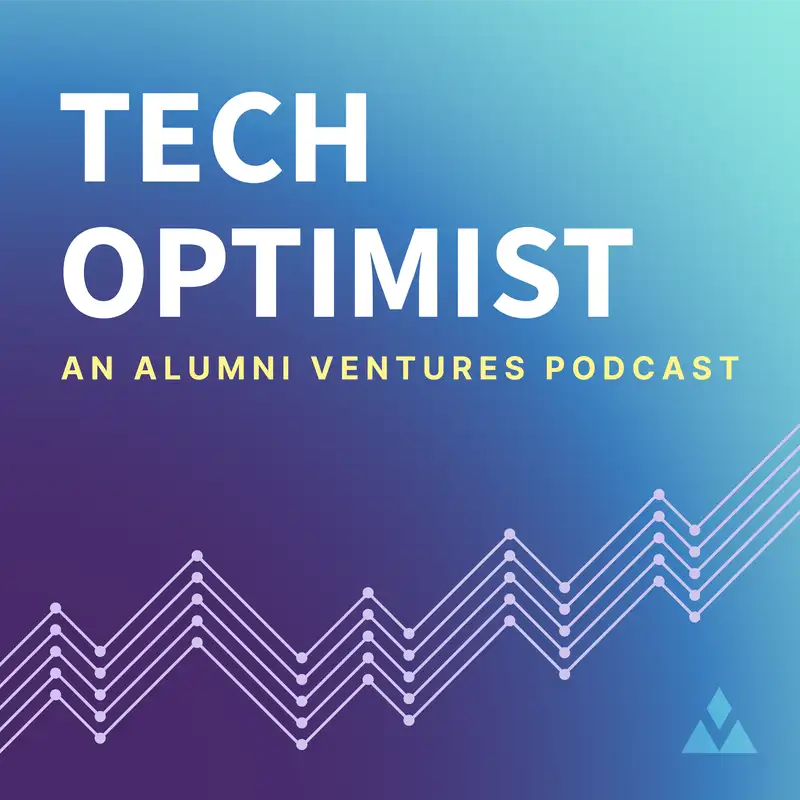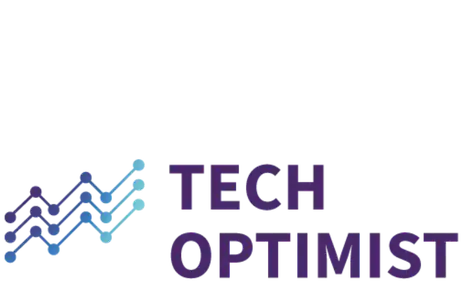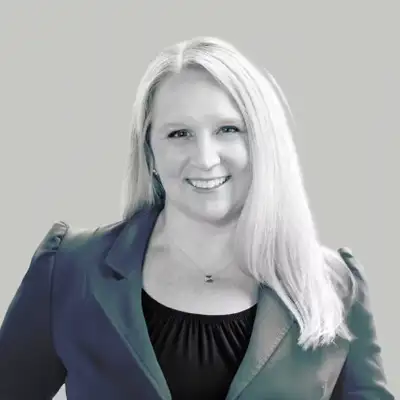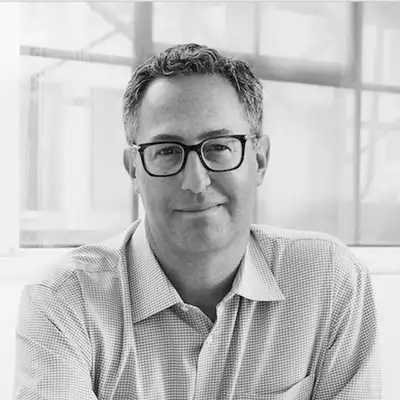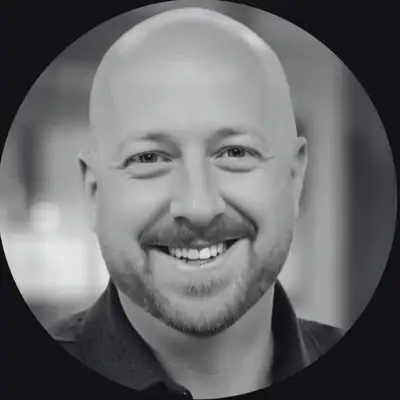#46 - High-Tech, High-Touch: How Salvo Health is Transforming Chronic Care
Sam Herrick:
What if you had your own team of the leading medical experts in the country in the palm of your hand? Let's find out.
Jeff Glueck:
That's what we do. And we avoid a lot of expense in healthcare because we're managing these chronic conditions proactively. We can both improve outcomes for patients, save time for doctors.
Mike Collins:
And there is still huge psychology and humans like being with other humans and they like talking to other humans. And so it's one of, I think, one of the challenges always with healthcare.
Jeff Glueck:
And the doctors just looked at me and said, "I wish that was true, but that's not how healthcare works."
Sam Herrick:
Hello, everyone. Welcome back to this episode of the Tech Optimist. Today, we have a Meet the Start-Up episode planned for you and the start-up in question is Salvo Health. They're doing some really great things, but let's get into the voices of the show first.
Our guide is going to be Mike Collins, Founder and CEO at Alumni Adventures. And then our guest entrepreneur today is CEO and Co-Founder of Salvo Health, Jeff Glick. And then of course you know my voice, you recognize it. My name is Sam. I'm the guide and editor for this podcast.
So a little bit more into Salvo Health. Salvo Health is a digital healthcare solution enabling local doctors and nurses to better treat the 60 million Americans who suffer from gut, GI, and metabolic chronic conditions, including IBS, metabolic liver disease, and obesity. Salvo Health partners with local private practices and hospitals to give each patient a team, including a registered dietitian, a GI-trained nurse, and behavioral health specialist, along with an app for seven-day-a-week support. Now, you'll see some footage of that app later in the episode today, but all of Salvo's multidisciplinary interventions are based on published clinical evidence honed by Salvo's renowned Clinical Advisory Board, including physician researchers from Cedars-Sinai, UCLA, Harvard, Columbia, and so many more.
Salvo's wraparound care provides continuous care between in-person appointments, including whole health that encompasses diet and nutrition, microbiome restoration, mind-gut programs, reducing toxic exposures, and dealing with sleep, stress, movement, and lifestyle.
So we've got a lot to cover today, so sit back, turn those listening ears on, and let's dive in.
As a reminder, the Tech Optimist podcast is for the informational purposes only. It is not personalized advice and it is not an offer to buy or sell securities. For additional important details, please see the text description accompanying this episode.
Mike Collins:
I'm Mike Collins, I'm the Founder and CEO of Alumni Ventures. It's my privilege today to be talking to Jeff Glick, the CEO and Co-Founder of one of our portfolio companies, Salvo Health.
And Jeff, welcome to our show.
Jeff Glueck:
Thanks for having me, Mike.
Mike Collins:
So elevator pitch for Salvo Health, tell me what do you guys do and why does the world need it?
Jeff Glueck:
So Salvo Health addresses a problem in healthcare. We work with specialty medicine, and frequently patients wait a long time to see specialty doctors who are in shortage, but more importantly, after they see the physician, they might get a diagnosis and be told to come back in six months. "Here's a brochure, good luck." And we believe that people with chronic conditions need a team.
And so we solve this gap in the healthcare system about augmenting the team of your primary physician, your local brick-and-mortar doctor, with a team that might include a nurse, a registered dietitian, and a therapist to work through an interdisciplinary program continuously. So every day, you have access to support over the months it can take to get a chronic condition under control.
And that's what we do. And we avoid a lot of expense in healthcare because we're managing these chronic conditions proactively. We can both improve outcomes for patients, save time for doctors, and it can be billed profitably to insurance. So it meets those three tests: it helps patients, it helps the physicians, and ultimately, it's making the healthcare system more cost-efficient.
Sam Herrick:
Again, I want to boost and boast a little bit about Salvo Health. I want to put them on a pedestal for a second and give them props for their mission as a company. This is my MO. I'm on their website, salvohealth.com/science, which helps explain their process and their sort of technology, I guess, you could say. And they have really cool phrases on this page that I wanted to share that really make you think about how you understand your body.
So, "Respect the complex. Conventional healthcare oversimplifies the way we think about our bodies, and we are here to change that." Awesome, amazing. "Understand your body like never before with Whole Self Science." Whole Self Science is their model of care and it's a trademarked thing. So, "In collaboration with world-renowned experts on our clinical advisory board, Whole Self Science combines diverse strategies from conventional and functional medicine to deliver results through a holistic evidence-based approach."
I'm going to throw up the diagram here just to get a visual on what exactly I'm talking about here. And it's very clear, very concise. It's designed really, really well. And in the center, is mind, body, and gut, and then what's surrounding this is the environment that you find yourself in, the relationships in your life, your sleep habits, how much you move throughout the day, your microbiome, the food that you digest every day, any stresses that are around you, and so on and so on.
They also talk about how your gut is a gateway. "We believe your gut's health is connected to the brain, your behaviors, and more. To restore balance and improve chronic symptoms, we developed a framework to address each part of the whole. Together, these add up to a more equipped and powerful you."
They have some really great blog articles on here as well, but I wanted to end this off with once you scroll all the way down to the end of the page, they have a really emotional way to end your scroll through this page, and it ends with love and taking care of yourself. And it says, "Love your gut with 24/7 care." And I just thought that was cool and wanted to share.
So all right, I will stop babbling. Let's get back into the rest of the show. And then hang tight, we're going to do an ad and then we'll be right back.
Speaker 1:
Hi, just a brief interruption to introduce you to the Healthtech Fund from Alumni Ventures. Alumni Ventures is one of the most active and best-performing VCs in the US, and we have raised over $1 billion from more than 10,000 individual investors. With our Healthtech Fund, you will have the opportunity to invest in a portfolio of around 20 Healthtech start-ups. From transformative healthcare services to groundbreaking diagnostics, our founders are paving the way for a healthier future.
To learn more, visit us at av.vc/funds/healthtech.
Mike Collins:
And where are you in your journey? Have you picked this approach for a specific chronic condition, and I guess where are you in the development of the company? It's a pretty early stage, right?
Jeff Glueck:
We're a seed-stage company and we're early in our evolution. We work with gastroenterologists today. So we work with people who face chronic conditions like IBS or IBD, conditions of liver disease that gastroenterologists and hepatologists treat, like MASH or MASL, what used to be called non-alcoholic fatty liver disease, which affects over 40 million people. GI conditions affect over 60 million people. And we also help these physicians with weight management, whether it's GLP-1 medication or the like, so that we provide the follow-on care.
It's private practices for the most part that don't have these rich interdisciplinary services that we're partnering and we're delivering the technology, the staffing, and the medical content and protocols to do all the follow-on care with the-
Mike Collins:
Yeah, one of the areas I just personally side-hustle within running this venture capital firm, there are certain technologies that just capture my imagination, GLP-1 is one of them, and there's been some pretty good indications for some of these conditions, but GLP-1 medications really require this kind of regular monitoring and feedback that really the traditional healthcare system isn't very good at managing, like, "Side effects? What are you doing? Should I up my dosage?" Those kinds of things. It's much better to have a team that you can be working with regularly. Are you finding that?
Jeff Glueck:
That's exactly our approach to this, Mike, is that what we're seeing is the physicians are prescribing GLP-1s, and what's happening all too often is they don't have a comprehensive strategy and support services for the patient. Many patients face side effects, and also insurance companies are loath to cover it so a lot of times they're facing supply or price challenges to stay on the medications. So studies have shown, that have tracked GLP-1 patients, that 65% or more patients don't stay on the medications for every year for all those reasons I volunteered-
Mike Collins:
Yeah, it's not because it's not working. It's because the system just does such a poor job helping them managing through it.
Jeff Glueck:
Exactly. And so as a GI specialist company, the side effects are generally GI-related, nausea and the like, and so our nurses and dietitians are trained in how to help people.
The other thing, these are powerful medications and they're showing incredible 20-plus-percent weight loss with some of the Mounjaro and like kinds of medications, and they have CBD benefits and lots of other chronic conditions, but one of the other issues that everyone is addressing is the loss of lean muscle mass with these. So if you approach them strategically and you're maintaining resistance training and protein-
Mike Collins:
Protein, yep.
Jeff Glueck:
... You can successfully approach GLP-1s in a way that you have the option to titrate off them over time, and for money or side effects or whatever reason, and retain the weight loss and feel healthier. Unfortunately, people who come off the medication without a plan, 75% or more of the weight comes back on within months. So we really, at very low cost, relative to the patient-
Mike Collins:
Yeah, and it's a super application for that. And again, just I know in our office of 100 people, we probably have 10 on them. So these issues are definitely, you're right, you're speaking to people who can definitely relate and hear water cooler conversations that are exactly on trend here.
So talk to me, just we always try to take a step back and beyond the particular company, you have a great perspective as an entrepreneur coming into this space. What do you think are tailwinds, big trends that Salvo Health is kind of riding the wave of?
Jeff Glueck:
Well, I think for people who know my career as CEO of Foursquare or CMO of Travelocity, I'm a very data-driven entrepreneur. And what people don't often understand about machine learning is that you have to build really high-quality structured datasets to serve as training sets. And when I was CEO of Foursquare, we had 13 billion check-ins where people would say, "I'm at this place," or, "I'm at that place" to try to be the mayor, but that was really profound because it allowed us to do ML models to detect where a phone passively entered at 100 million places.
And so to build those structured datasets, it takes years, and the AI approaches, LLMs, and yet I think that that has all kinds of limitations in that you're reading an enormous amount of papers that are mostly about drug discovery, and so they don't tend to capture interdisciplinary programs that include psychology and diet and movement and lifestyle change and stress and sleep. And we're very interested in the interplay in a personalized precision medicine sense of how all these things work for different patients. And if you think about drug discovery, it tends to be how do we find a medication that can pass a controlled RCT, and then we're going to give it to everyone whether or not they have the right genetics or the right case history because that's lucrative, and so I'm very interested in precision medicine.
So I think the trend that we're playing on ultimately is this is a data company about building machine learning to improve personalized medicine, but you can't start there. You have to build these rich datasets. And by partnering with local brick-and-mortar gastroenterologists, and hepatologists, and hopefully soon weight-loss clinics and primary care doctors, we are both solving their short-term problem, but we're improving medicine over time with those datasets.
Mike Collins:
I think in looking at this company too, I always, I'm a tech venture capitalist, but there is human beings in this equation and there is still huge psychology and humans like being with other humans and they like talking to other humans. And so it's one of, I think, one of the challenges always with healthcare, which is how do we use technology more better, more precisely, more personalized, but then at the end of the day, free up humans to interact with other humans in the way we all want to be interacted with?
Jeff Glueck:
Well, I think that's so spot-on. In fact, the first question in the app when you get assigned your nurse and your dietician that the patients ask almost always is, "Are you real people or am I talking to a bot?" And they're so happy that they're talking to real people with expertise in their condition. And yet we've invested a lot. I mean, we've raised $15 million in automation, and so literally the average patient spends about three hours a month with our services, and two-thirds of them are entirely software-mediated, one-third is human, but we want that human therapeutic-
Mike Collins:
Yeah, the one-third is so important, right?
Sam Herrick:
I think this aspect of the digital atmosphere that Salvo Health creates within their app and within their staffing is really important and really cool. So I found an interview that Jeff gave with Logan Plaster of StartUpHealth TV and they talk about, "Salvo's Health digital-first care drives strong outcomes for chronic GI issues."
Now, there's a span of about four minutes in this interview that I think is really insightful and will add some context to the narrative that we have going here. He talks about staffing issues throughout the country, and he also talks about how the digital infrastructure really helps provide these connections between the dieticians, the therapists, and the nurses that Salvo helps provide to the patients that utilize their technology.
So really quick, we're going to do one last ad and then we'll hop into that segment of the interview. And then after that, we're going to hop into Salvo's ask for everyone here at the Alumni Ventures community, and then we will just round off the interview right there.
So hang tight, let's get back into it.
Speaker 2:
Do you have a venture capital portfolio of cutting-edge start-ups? Without one, you could be missing out on enormous value-creation and a more diversified personal portfolio. Alumni Ventures, ranked a top 20 VC firm by CB Insights, is the leading VC firm for individual investors.
Believe in investing and innovation? Visit av.vc/foundation to get started.
Jordan Plaster:
Welcome to StartUpHealth TV where we celebrate the entrepreneurs and the innovators who are transforming health. I'm your host, Logan Plaster. It's my privilege to be here with Jeff Glick, CEO and Co-Founder of Salvo Health. Jeff, thanks for joining me today.
Jeff Glueck:
Great to be here. 86% of patients we survey with chronic gut problems say they've been to doctors, but they're not better, they're not resolved. These are things that doctors, for the most part, don't have a lot of time to treat. So doctors, for the most part, aren't trained in nutrition or cognitive behavioral therapy or microbiome rebalancing, and they don't have usually the staff or the time to do the follow-on care in a very personalized journey. And people don't feel heard.
I mean, one of the nice things for us is each patient gets through our Salvo Health app, in addition to their main doctor, they get a nurse, a dietitian, and a therapist in addition to digital programs every day, and they feel heard for the first time. And IBS is one of the most common ailments in America, and it used to be called hysterical housewife syndrome by the male... Because it's two-thirds women, it's younger women, they're gaslit, they're ignored, and stigmatized by the system. It's embarrassing to talk about this stuff. And so we're really giving the privacy of your own team over the four to six-month treatment period where you really get to know your team and they get to know you. And it's done very software-enabled, so it's very affordable.
Jordan Plaster:
Interesting.
Jeff Glueck:
And we can talk about our new research on the cost of these patients that are underserved on the system, which is really hot.
Jordan Plaster:
Yeah, tell me about that. How did you conduct the research?
Jeff Glueck:
So we contracted with the leading actuarial firm in healthcare. They ran a study for us looking at 9.5 million covered lives, and we asked them to compare IBS sufferers and IBD sufferers in total medical expense, all medical expense, to the average American, both commercial and Medicare.
And the results that came back, obviously everyone knows Crohn's and colitis patients, IBD patients, are very expensive, six times an average. But what people don't talk enough about is there are 15 times more mid-acuity patients, like IBS and the like, and those patients cost double the average patients. So instead of $7,000 a year TME, the cost to the system is over $14,000. And these are the mid-acuity patients. Because you know what happens? They don't get good care. They usually will get a colonoscopy, an endoscopy and told, "You don't have colorectal cancer. Good news, 28-year-old sufferer, you don't have cancer, come back in nine months. Here's a pamphlet." That's the care, the usual care today.
Those people then end up in the ER, they end up going back to PCPs, they go to different a GI seeking a different answer. They get new imaging, new studies. They're very expensive. They also have anxiety and depression and work, they're missing work, and they're expensive in care. If we could address the problems, we could cut huge amounts of waste and the human suffering associated to it. And that's what we do.
So it's an absolute myth that these mid-acuity patients are not high-utilization. 60 million people are, they're frustrated, they're suffering, and they're expensive, and they deserve solutions.
Jordan Plaster:
It's kind of a whole philosophical switch to really focus on the needs and costs of mid-acuity. We're talking about gut health, but I see that as a trend across the landscape and to say there are these needs just under the surface, or maybe that just didn't reach the level of urgent care or emergency yet, and yet they are potentially breaking the back of the system. They're also stopping people from living full lives.
Jeff Glueck:
That's right. That's right. And I think this is where the intersection of the gut health crisis and the staffing shortages in America hit because everyone here at HLTH is talking about the shortage of physicians, but also the shortage of nurses, the shortage of psychotherapists in this country. And there's only about 100 gut-focused psychotherapists in the entire country, and there's 60 million sufferers.
So what we're trying to do is we're taking the very best experts in the field and we're digitizing a lot of what they do and also enabling it through software, but then keeping that human touch of a dedicated team for support. And so the average patient in the Salvo Health getting treatment is getting three hours of care a month in the app. They're opening it nine times a week on average. But it only... Because of all the software and technology, I mean, I'm a former CMO of Travelocity and CEO of Foursquare, as you know, we're doing 3X is the ratio. So it takes less than an hour of nurse and therapist and dietitian time to provide three hours of care.
Jordan Plaster:
Exactly.
Mike Collins:
And to make it as productive and as efficient as possible.
So what are your asks, Jeff? How can our community of other entrepreneurs and investors, how can we help your company?
Jeff Glueck:
Well, the best thing is going to sound simple, but if you happen to be a fan of how we're trying to change medicine and you have a gastroenterologist, and particularly if they're in a private practice, introductions are the way we've grown. So introductions to your local gastroenterologist, we'll talk to their firm. We tend to see a lot more success with private practices than giant healthcare systems because those don't make decisions on a human time scale. [inaudible 00:22:59] And so that's turned into a number of clients.
And so that's the ask is if you work in healthcare or you have a gastroenterologist who you admire and you think they're forward-thinking, please connect them to Salvo Health.
Mike Collins:
Excellent. We will do that. We have people in our network that that's middle of the fairway for, so please reach out.
So talk to me a little, give me the origin story. You have a really fascinating background. How did your career develop and how did the path lead to Salvo Health?
Jeff Glueck:
So I spent my 20s on other mission-driven projects before I came into tech. I worked in the White House, I worked in economic development around the world, I worked on Middle East Peace, I worked in climate change. And when I finally, with a friend, started a travel e-commerce company back in 1999, and just the two of us, we built an amazing team of other folks, and we got to $100 million in sales in two years, and that was an incredible thing to do back before Google or Facebook existed [inaudible 00:24:14]-
Mike Collins:
Yeah, that's a ride. Yeah.
Jeff Glueck:
And it was a blast. And I got hooked on start-ups. My career evolved. I ended up being running product and marketing at Travelocity. I invented, with our team, the Travelocity Gnome, we launched him, the original gnome is back there in my home office here.
Mike Collins:
Oh, yeah.
Jeff Glueck:
And then ended up being CEO of Foursquare and growing that company, including a couple acquisitions, about tenfold in a couple years.
So we really had built a platform that was machine learning-based, but I went through a personal experience where my wife and I lost what would've been our first child at 23 weeks. And it was, in hindsight, a preventable loss in that we had a clotting disorder and we were able to have, thank goodness, healthy children afterwards, but only because we knew to take some anti-clotting medications throughout the pregnancy.
And I remember asking the OBGYN, you know, "How come you don't test for this?" And they said, "Well, we don't even bother because the insurance companies don't pay for genetic tests until you've had three miscarriages," which just seemed human tragic and also short-signed because-
Mike Collins:
And stupid.
Jeff Glueck:
Just stupid. These aren't expensive tests. And losing a baby at 23 weeks is a really traumatic, and frankly expensive, hospital process, but it's just heartbreaking to go through that. And I asked the OBGYN at Mount Sinai, "Please tell me," we're in tears, we've lost this child, and, "please tell me that the next couple is going to somehow benefit, like what happened to us is less likely because all this data goes into really well-structured datasets in the best physician researchers and the best machine learning and data scientists are in there improving healthcare each quarter." And the doctors just looked at me and said, "I wish that was true, but that's not how healthcare works."
And I worked in AdTech and all of this, and e-commerce, and none of it was ultimately as meaningful as healthcare, which is, in some sense, the most important industry because it's life and death, and it's our quality of life and for the people we love. And I just vowed that if I was ever in a position to start a company that would continually bring learning and data to improve healthcare, that I would launch that company. And what happened during the pandemic is I finally found myself at the time to think about what kind of company I wanted to launch next, and we launched Salvo.
Mike Collins:
Yeah. Well, thank you for sharing that very personal story, and you have a lot of fans rooting for you, and the work is important and the journey is just starting. So again, I tip my cap to kind of jumping in to the fight. Getting back in the arena, Jeff, is noble and we appreciate you and really proud to be part of your company and let's have our community reach out, help, let's get the flywheel going. To the extent we can help, that would be great. And I look forward to checking in in six, 12 months and getting an update.
So Jeff, thank you. Keep up the good work and really nice meeting you.
Jeff Glueck:
Thanks, Mike. And we're really honored to have Alumni Ventures as a backer, so we're in the fight for all the right reasons and glad to have you as a partner.
Mike Collins:
Excellent. Okay. Have a great rest of your week, Jeff. Nice meeting you.
Jeff Glueck:
Same, same right back.
Mike Collins:
All right, take care.
Jeff Glueck:
Yep, bye.
Mike Collins:
Yeah.
Sam Herrick:
Thanks again for tuning into the Tech Optimist. If you enjoyed this episode, we'd really appreciate it if you'd give us a rating on whichever podcast app you're using, and remember to subscribe to keep up with each episode.
The Tech Optimist welcomes any questions, comments, or segment suggestions. So please email us at info@techoptimist.vc with any of those, and be sure to visit our website at av.vc.
As always, keep building.
